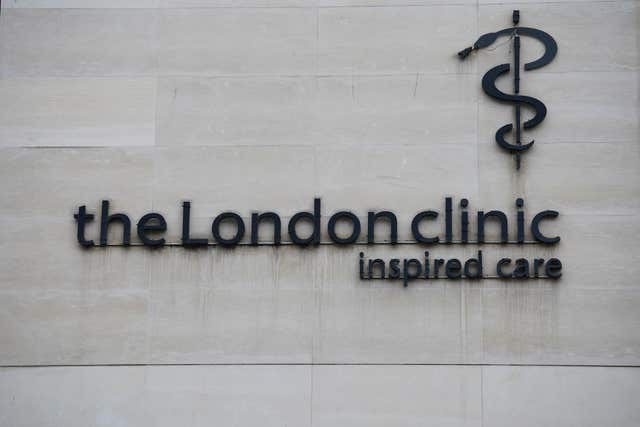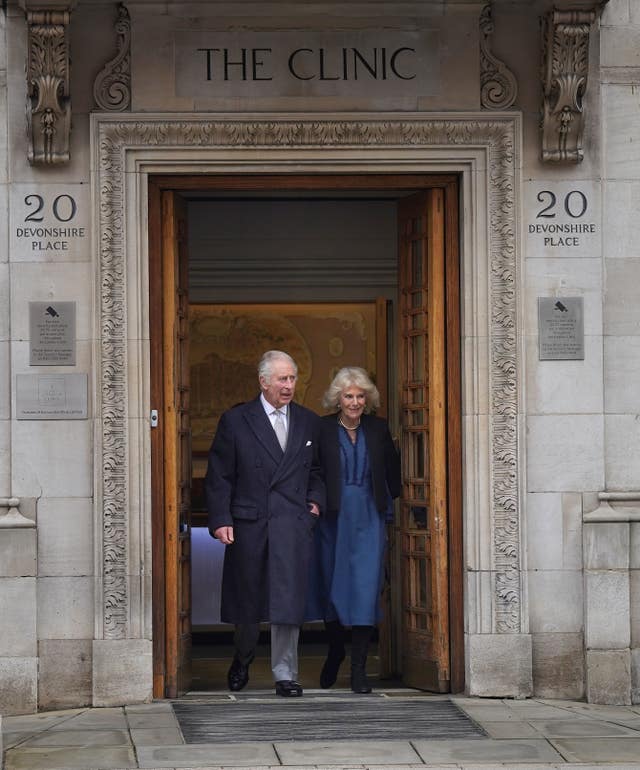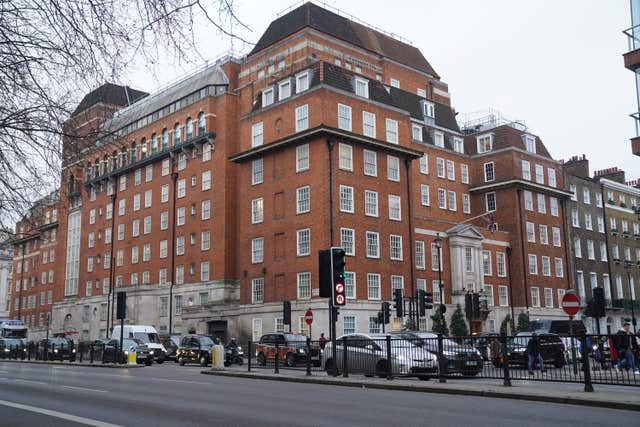The top private hospital where the Princess of Wales was treated before her cancer diagnosis was investigated for a royal data breach this week.
Kate, 42, is being treated for cancer after undergoing abdominal surgery at The London Clinic on January 16 this year, she announced in a video message to the nation on Friday.
Earlier this week the Daily Mirror reported that at least one worker at the clinic had looked at her medical records without authorisation.

The London Clinic’s chief executive, Al Russell said “all appropriate investigatory, regulatory and disciplinary steps will be taken”.
The UK’s privacy and data watchdog, the Information Commissioner’s Office (ICO), said: “We can confirm that we have received a breach report and are assessing the information provided.”
Kensington Palace declined to comment on the alleged incident.
The King, who is undergoing treatment for a form of cancer, was also treated at the centre for an enlarged prostate this year.
The London Clinic was officially opened by the then-Duke and Duchess of York in 1932.

The King, as the then-Prince of Wales, opened the physiotherapy department in 1989, while Princess Margaret launched the MRI unit in 1991.
The late Queen unveiled a new cancer unit in 2010.
Past patients include the late Duke of Edinburgh Prince Philip, the late Queen’s younger sister Princess Margaret and former US president John F Kennedy.
Actress Elizabeth Taylor was also treated at the clinic after falling on a film set in the 1960s.
According to its website, the hospital was “founded on the principles of providing excellence in one place”.
The facility said it could treat 154 conditions, including multiple types of cancer, with hundreds of treatments, tests and scans available.
It also operated as a charity, reinvesting in research, education and innovation.
Since the 1980s, a number of facilities at the site have been officially launched by members of the royal family.

According to the health watchdog, the hospital has about 23,000 inpatients a year, with a further 110,000 outpatients.
It is registered to provide surgery as well as diagnostics and screening, treatment of disease, disorder or injury, management of supply of blood and blood-derived products.
The building at 20 Devonshire Place has seven main operating theatres and three additional theatres, as well as six speciality wards for surgeries in urology, gynaecology, thoracic surgery, orthopaedics and spinal procedures.






